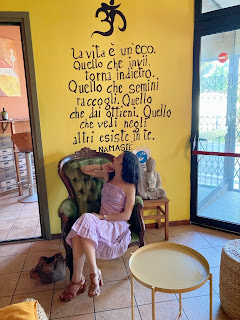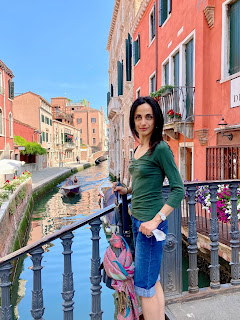“Non sai ciò che hai finché non lo perdi
Non so cosa ho fatto di così sbagliato
Vuoi vedermi implorare, tesoro
Non puoi darmi solo un altro giorno?
Non vedi che il mio cuore si è trascinato, ultimamente?
Ho cercato le parole da dire”(Cinderella)
English version at the link: Sentimental Education
Così come non esiste una scuola per fare i bravi genitori, non c’è un corso di studi per diventare amanti eccellenti. Come afferma Kierkegaard “siamo tutti principianti in amore.” Questo significa che siamo tutti un po’ inadeguati e che impariamo a nostre spese, tra tentativi, errori, aggiustamenti di tiro e approssimazioni. La relazione intima, quando è vissuta con autenticità, mette in gioco tutto il nostro essere con le sue luci e le sue ombre, le sue latenti potenzialità e le imprescindibili ferite: ecco perché ci attira e ci spaventa allo stesso tempo.
Per quanto mi riguarda, affermo sempre che la mia vita sentimentale non depone a mio favore. Tutt’oggi, alla tenera età di 43 anni, devo ammettere di non aver mai avuto una relazione decente. Con questo termine intendo un rapporto sereno, senza troppe turbolenze o sofferenze, che invece sono state la costante delle mie brevi e burrascose storie d’amore.
Alla luce delle mie vicende e anche di quelle dei miei amici o clienti di counseling, mi sento di condividere le parole di James Hillman: “L’amore è una follia ed è solo grazie ad esso che andiamo oltre noi stessi. È ciò che ci fa crescere le ali, che ci spinge a scrivere lettere d’amore, a guidare tutta la notte, a fare cose incredibili. Siamo incredibili quando siamo dentro quella follia, siamo incredibili quando amiamo.”
A tal proposito, consiglio il video di Michele Mezzanotte ‘Il vero amore esiste ma va costruito. Quattro segnali per riconoscerlo.’(Video) Qui Michele utilizza la mitologia, e in particolare la metafora delle quattro ali di Eros, per evidenziare gli ingredienti-chiave della relazione amorosa:
1) Guerra e Bellezza. Una coppia affiatata difficilmente nasce ‘a tavolino’, per comodo, per paura della solitudine o per trascorrere il lockdown in compagnia. Occorre la scintilla magica e imponderabile dell’attrazione, il senso di riconoscimento reciproco che ti fa scegliere quella donna o quell’uomo tra mille potenziali partner. Tale elemento passionale può essere anche alla fonte di conflitti, gelosie e paure, proprio perché si teme la perdita di qualcuno che riconosciamo intuitivamente come molto importante per noi.
2) Sacrificio: Con questo termine non si tratta di immolarsi alla relazione in un atteggiamento di compiacenza passivo-aggressivo, quanto piuttosto di ‘rendere sacro’ ciò che è ancora oscuro in noi e nell’altro. Sacrificio è anche integrità: far convergere tutto il nostro essere verso una sola persona, disciplinando la nostra personalità e resistendo alla lusinga di disperderci e frammentarsi in altre storie e gratificazioni del momento. Sacrificio è scostarsi dalla nostra zona di comfort, rinunciare a certe abitudini rassicuranti e alla propria inerzia spirituale, che spesso nasconde egoismo e paura di soffrire.
3) Sostegno: l’amore deve essere una stampella nei momenti bui, non un ostacolo al nostro cammino. I due partner devono poter trovare conforto e supporto l’uno nell’altro, incoraggiamento e motivazione per l’attualizzazione e la realizzazione di se stessi e del proprio progetto di vita. Una relazione non può essere soffocante o sbilanciata, nel senso che uno dei partner si fa carico di tutto il lavoro emotivo, propositivo o progettuale del rapporto e l’altro si lascia trainare.
4) Rinnovamento. Come mai le relazioni finiscono? In effetti ogni cosa ha il suo corso naturale ed è illusorio credere di restare per sempre nella fase delle farfalle nello stomaco. Fisiologicamente, le emozioni più vitali dopo un po’ tendono a spegnersi, a meno che l’individuo non sia capace di rinnovare se stesso e, di conseguenza, la coppia. Questo avviene in persone fortemente dinamiche e assetate di reale conoscenza, che non danno per scontate se stesse né tantomeno il partner. La capacità e il desiderio di apprendere, calibrata sulla propria interiorità o su quella del proprio compagno, può farci realizzare che l’essenza della vita è misteriosa, e che l’amore può avere mille sfumature, mille sapori e mille colori, esattamente come l’anima di un essere umano.
Per cui, benché io non sia il testimonial ideale delle relazioni di coppia, credo si tratti di una delle avventure più affascinanti che l’individuo possa intraprendere. Attraverso un confronto il più possibile intimo e sincero con il partner, possiamo articolare in noi i passaggi essenziali per compier-ci, re-integrarci e perfino trascenderci.













